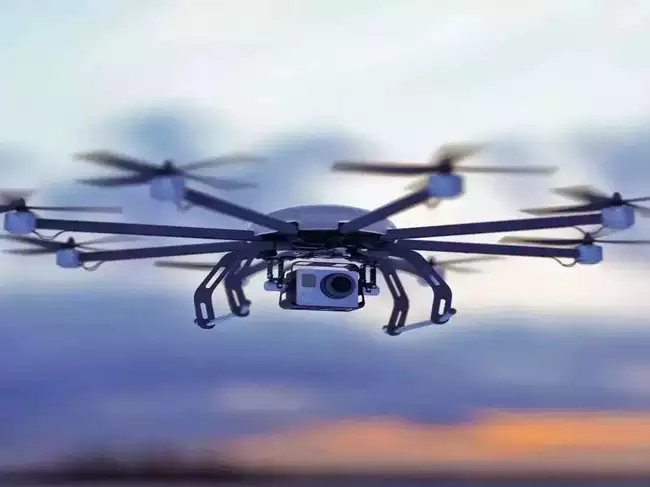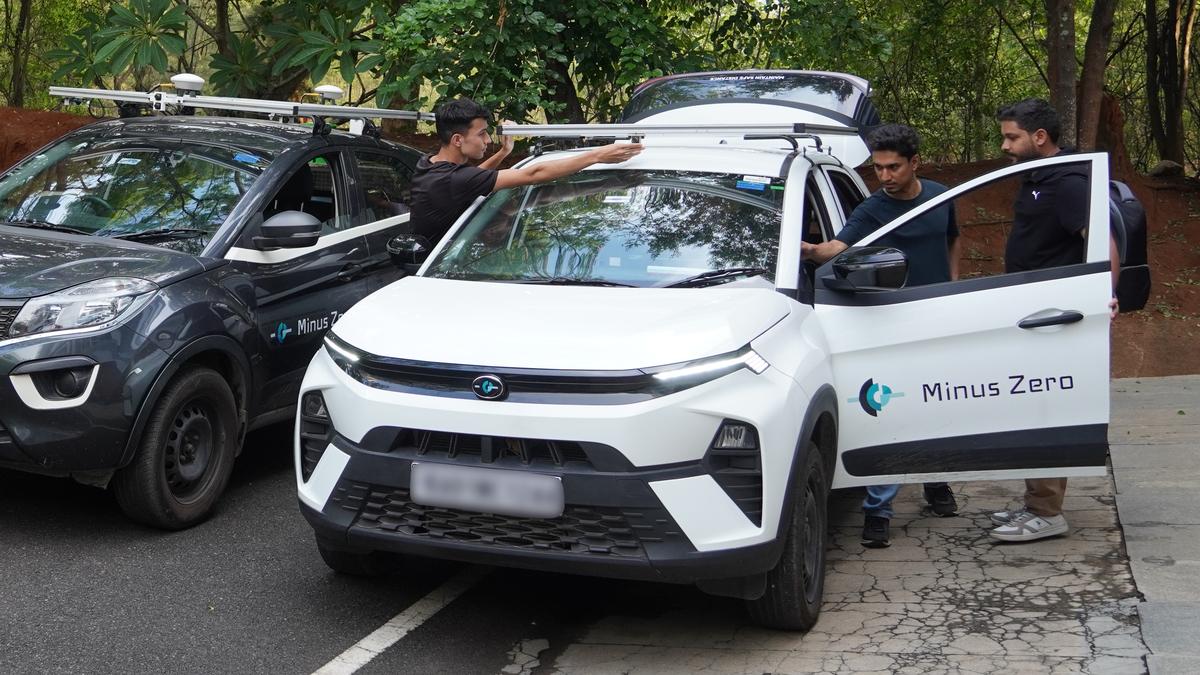
In a significant development poised to revolutionize logistics and supply chain management, an innovative startup based in Odisha has launched a fully autonomous logistics drone service. This groundbreaking initiative promises to enhance the efficiency and reliability of goods transportation, particularly in remote and underserved areas. With the potential to transform how goods are delivered, this launch marks a pivotal moment in India’s burgeoning drone industry.
The Vision behind the Startup
Founded by a team of tech enthusiasts and logistics experts, the startup aims to address some of the long-standing challenges in the logistics sector, including delayed deliveries, high transportation costs, and limited access to remote regions. Recognizing the potential of drone technology, the founders envisioned a service that could not only streamline delivery processes but also contribute to broader economic development.

Key Objectives
- Efficiency: The primary goal is to reduce delivery times significantly. Drones can bypass road traffic and geographic barriers, ensuring that goods reach their destinations more quickly.
- Cost-Effectiveness: By utilizing drones for logistics, the startup aims to lower transportation costs, making it more affordable for businesses, especially small and medium enterprises (SMEs).
- Accessibility: The service is designed to cater to areas that traditional logistics companies find challenging to reach, thus promoting inclusivity in supply chain solutions.
How the Autonomous Drone Service Works
The fully autonomous logistics drone service employs cutting-edge technology to ensure seamless operations. Here’s a breakdown of how it functions:
1. Advanced Navigation Systems
The drones are equipped with sophisticated GPS and navigation systems that allow them to operate autonomously. They can plan optimal flight paths, avoid obstacles, and adjust their routes in real time based on environmental conditions.
2. Payload Capacity and Versatility
The drones are designed to carry a variety of payloads, from medical supplies to consumer goods. This versatility makes them suitable for various sectors, including healthcare, e-commerce, and agriculture.
3. Real-Time Monitoring
The startup employs a robust monitoring system that allows for real-time tracking of the drones. Customers can receive updates on their shipments, enhancing transparency and trust in the service.
4. Safety Protocols
Safety is a paramount concern in drone operations. The startup has implemented stringent safety protocols, including collision avoidance systems and emergency landing procedures, to ensure the safe delivery of goods.
ChatGPT Search: OpenAI Launches Real-Time Web Search to Compete with Google
Benefits of the Autonomous Drone Service
The launch of this service brings a multitude of benefits for businesses and consumers alike:
1. Reduced Delivery Times
By leveraging drone technology, the startup can significantly cut down delivery times, making it possible to deliver products within hours rather than days. This rapid response is especially crucial for industries that rely on just-in-time inventory management.
2. Cost Savings for Businesses
Drones can reduce operational costs by minimizing the need for extensive ground transportation networks. This cost-effectiveness can help businesses offer competitive pricing to consumers.
3. Environmental Impact
Drones are typically more energy-efficient than traditional delivery vehicles. By reducing reliance on fossil fuels and minimizing emissions, the service aligns with global sustainability goals.
4. Access to Remote Areas
Many regions in India face logistical challenges due to poor infrastructure. The autonomous drone service can bridge this gap, enabling access to essential goods and services for rural and underserved communities.
Real-World Applications
The potential applications for the fully autonomous logistics drone service are vast and varied. Here are a few examples:
1. Healthcare Deliveries
In urgent situations, such as medical emergencies, drones can deliver life-saving supplies like blood, vaccines, and medicines to remote hospitals or clinics within minutes.
2. E-commerce Solutions
As e-commerce continues to grow, the demand for fast and reliable delivery options increases. Drones can provide a competitive edge for online retailers by ensuring rapid delivery of products to customers.
3. Agricultural Support
Farmers can benefit from drone deliveries of seeds, fertilizers, and equipment, which can be crucial during planting seasons. This service can enhance agricultural productivity and food security.
4. Disaster Relief
In the aftermath of natural disasters, drones can deliver aid and supplies to affected areas that may be inaccessible by traditional means. This capability can expedite relief efforts and save lives.
Challenges Ahead
While the launch of the autonomous logistics drone service represents a significant advancement, several challenges must be addressed:
1. Regulatory Hurdles
The drone industry in India is still navigating regulatory frameworks. Ensuring compliance with aviation regulations and obtaining necessary permits will be essential for smooth operations.
2. Public Perception and Acceptance
Gaining public trust in drone technology is vital. The startup must engage with communities to address concerns about safety, privacy, and noise pollution.
3. Technological Limitations
While drone technology has advanced significantly, challenges such as battery life, payload capacity, and weather limitations remain. Continuous innovation will be necessary to overcome these hurdles.
4. Infrastructure Development
The effectiveness of drone logistics will depend on the development of supportive infrastructure, such as drone ports and charging stations. Collaborative efforts with government and industry stakeholders will be crucial in this regard.
India Approves $119 Million Fund for Space Startups: A New Era for Indian Space Innovation
Conclusion
The launch of a fully autonomous logistics drone service by an Odisha-based startup marks a transformative step in the logistics and supply chain landscape of India. By harnessing the power of drone technology, the startup aims to enhance efficiency, reduce costs, and improve accessibility to goods and services.
As the service rolls out, it has the potential to address critical challenges faced by various sectors, particularly in remote and underserved areas. While there are challenges to overcome, the benefits of this innovative approach could significantly impact businesses and consumers alike.
As the drone industry continues to evolve, the success of this initiative could pave the way for further advancements and applications, heralding a new era in logistics and supply chain management in India and beyond. With continued investment, innovation, and collaboration, the future of autonomous logistics looks promising.































Howdy just wanted to give you a brief heads up and let you know a few of the images aren’t loading correctly. I’m not sure why but I think its a linking issue. I’ve tried it in two different browsers and both show the same results.
I do trust all the concepts you have offered for your post. They are very convincing and will definitely work. Nonetheless, the posts are very short for starters. May just you please lengthen them a bit from next time? Thank you for the post.